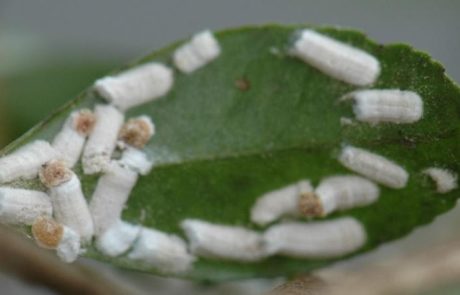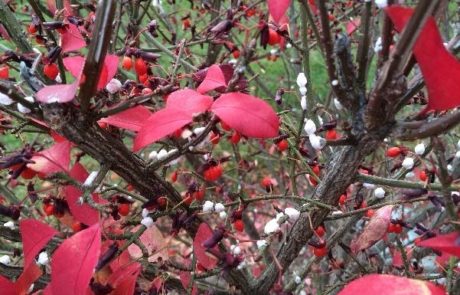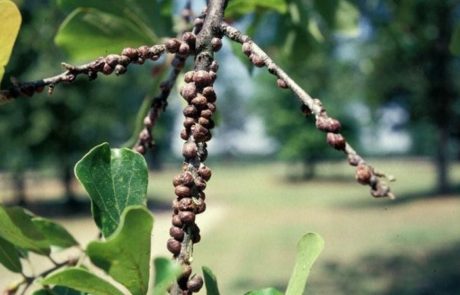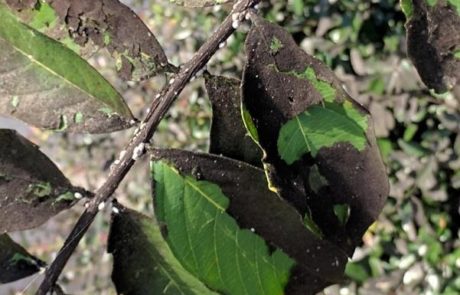CALL TO MEET WITH AN ARBORIST
704.525.3066 Charlotte
828.231.6008 Asheville
704.892.8927 Lake Norman
Soft Scales
Trees and Shrubs at risk – Many of our common landscape trees and shrubs are susceptible to armored scale insects. The list includes but is not limited to: Maples, Serviceberry, Camellia, Hawthorn, Red Bud, Yellowwood, Dogwoods, Cotoneaster, Euonymus, Ash, Locust, Holly, Privet, Magnolia, Crabapples, Plum, Pyracantha, Pears, Willow, Styrax, Lindens, Elms, Zelkova, Azalea, Rhododendron and others.
Common Soft Scales in our region
Cottony camellia scale on Camellia (underside of leaf)

Signs and Symptoms:
These can vary widely depending on the type of scale and the type of host plant. The most common and alarming sign of soft scales in the landscape is the presence of sooty mold on trees and/or shrubs. Other signs and symptoms range from discoloration of foliage on Camellia and Holly from wax or cottony camellia scale, to premature leaf drop and/or stunting and limb dieback on Maple or Magnolia due to severe infestations of Magnolia scale and cottony Maple scale
Treatment Strategy:
Soft scale can be very difficult to manage after populations are established and control can not always be expected quickly. Some infestations may take two to three seasons or more to get under control. Early detection is critical for best management of infested trees. Monitor three to four year old twigs for the white and gray protective covers of this armored scale insect. Heavily infested branches should be pruned and destroyed. Treatment strategies and timing varies slightly depending on which variety of scale is being targeted. The most effective treatment strategies will include a three part treatment schedule.
- Systemic application in mid to late spring to target the early crawler stages.
- An application of an insect growth regulator and a horticultural oil mixture in the early to mid summer.
- A winter dormant oil application should be applied during the winter dormant season.
Whenever possible beneficial insect releases will be made to help reduce reliance on pesticides and help control the pests naturally. Please note that even after control is achieved the scale insect bodies can remain on their host for several more seasons.
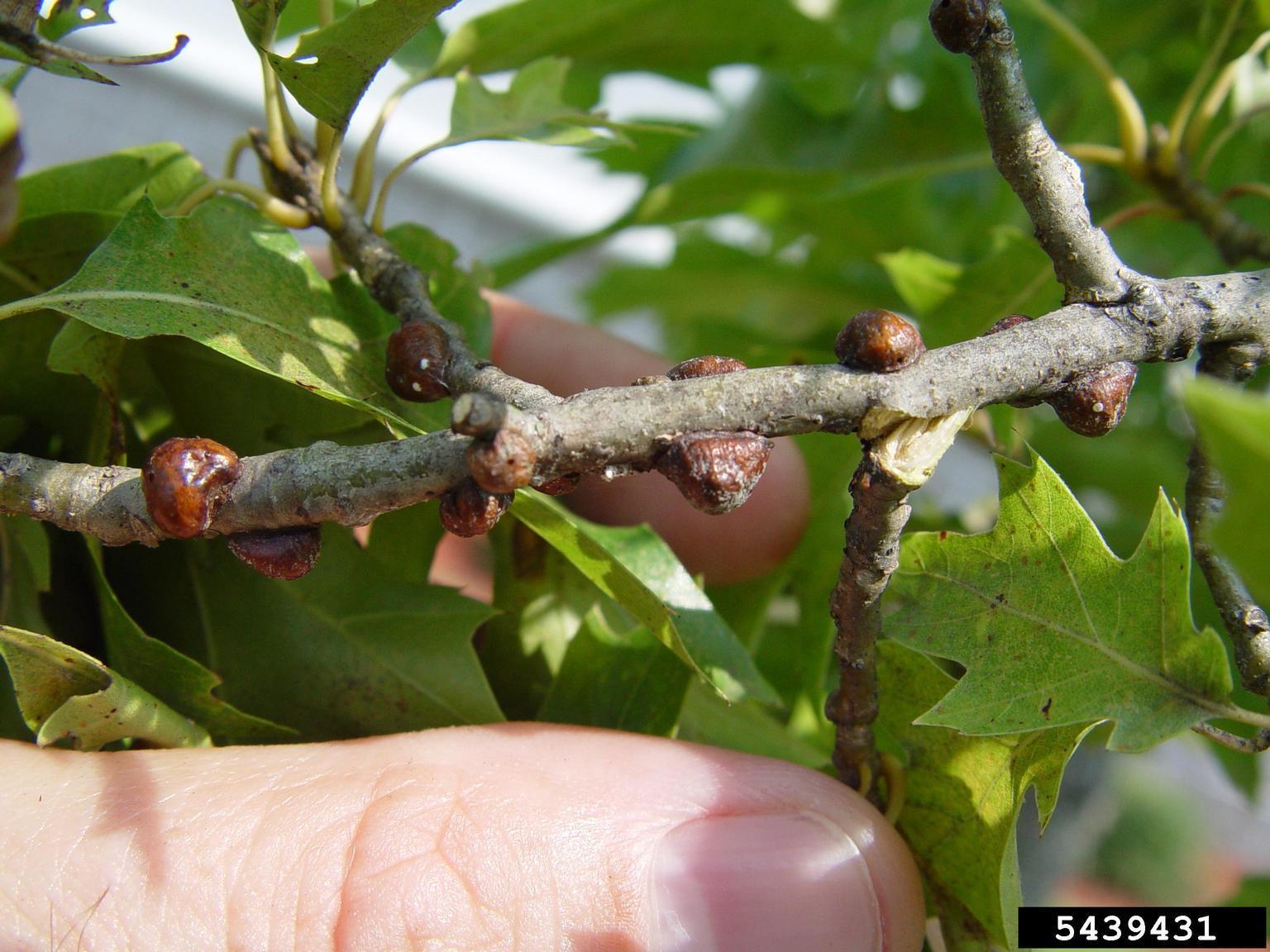
GET LIVE UPDATES FROM HEARTWOOD TREE
Stay current with the updates, newsletter and our event schedule. We are passionate about increasing awareness about the diminishing canopy coverage of our planet and we’re always staying involved to continue to be a part of the solution.

